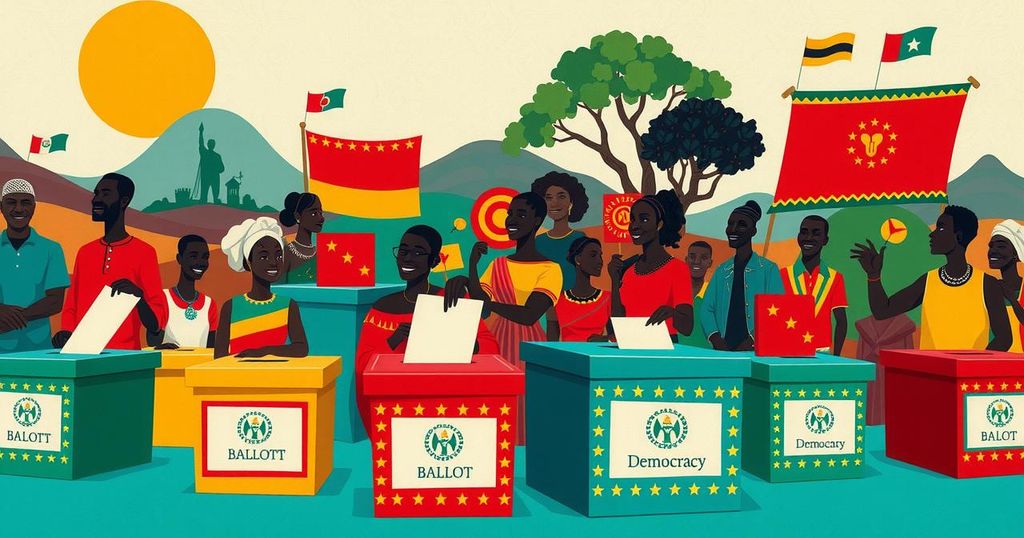Swapo’s Election Results Reflect Wider Trends of Electoral Losses in Africa

Namibia’s Swapo party retained power but saw a decline in its electoral strength. Other sub-Saharan African governments faced significant losses in recent elections due to factors like economic downturn and public discontent with corruption. Opposition parties have demonstrated resilience, forming coalitions and challenging incumbents successfully, signaling democratic progress in the region.
In Namibia’s recent elections, the ruling party Swapo maintained power for over 30 years, but its dominance has waned. Candidate Netumbo Nandi-Ndaitwah won the presidential election with 57%, making history as Namibia’s first female leader. Nonetheless, opposition parties have contested the results due to reported logistical issues and irregularities, leading to significant questions about Swapo’s simultaneous performance in presidential and parliamentary elections.
Swapo is not the only party facing electoral challenges in sub-Saharan Africa this year. Many governments have seen significant voter backlash, described as an “annus horribilis” for incumbents. Various contributing factors include economic decline, increasing public outrage over corruption, and an emergence of assertive opposition groups, suggesting this trend is likely to continue.
2024 elections in many countries have resulted in unexpected defeats for governments once viewed as stable. In Botswana, the Democratic Party (BDP) faced a monumental blow, reducing its parliamentary presence drastically. Similarly, Mauritius experienced a complete political overhaul as the opposition Alliance du Changement secured 60 seats while the governing coalition faced substantial losses.
In Senegal, the dynamics shifted considerably with opposition leaders being released from jail mere weeks prior to elections, resulting in a major victory for opposition candidate Bassirou Diomaye Faye against the incumbent’s candidate, who only garnered 36% of the vote. South Africa’s ANC also retained power but fell below 50% of the national vote for the first time since ending apartheid in 1994, compelling coalition governance.
These electoral shifts highlight a pattern of discontent towards incumbents, reflecting citizen mobilization against corruption and economic mismanagement. Issues such as rising life costs due to inflated food and fuel prices have exacerbated public dissatisfaction, manifesting in protests and mounting political opposition.
The trends seen in Africa resonate globally, with inflation affecting political outcomes, as noted in the UK and the U.S. However, unique strategies by opposition parties have emerged in Africa, involving increased vigilance in electoral processes and the formation of coalitions to better challenge ruling parties. The complex political landscape suggests potential challenges for Ghana’s upcoming elections and more hurdles for Malawian leadership by 2025.
In sum, the significant electoral losses faced by various African governments amid broader global trends reflect an underlying resilience in terms of democratic practices. The mobilization of civil society and the electorate signifies a push for greater accountability. Observers and democratic advocates globally should recognize Africa’s unique multi-party dynamics and the potential for democratic renewal despite entrenched authoritarianism.
Namibia’s elections reflect a broader trend of ruling parties in sub-Saharan Africa facing significant challenges and voter backlash. Factors such as corruption, economic hardship, and increased public engagement have contributed to historic electoral shifts, highlighting a growing demand for accountability. The dynamics observed across multiple countries demonstrate an enhanced resilience for democratic processes in Africa, encouraging international attention and recognition of its multiparty landscape amidst global authoritarian trends.
Original Source: www.bbc.com







